#Sugar Substitutes
Explore tagged Tumblr posts
Text
Strawberry Penna Cottas - 130 kcal/5g protein
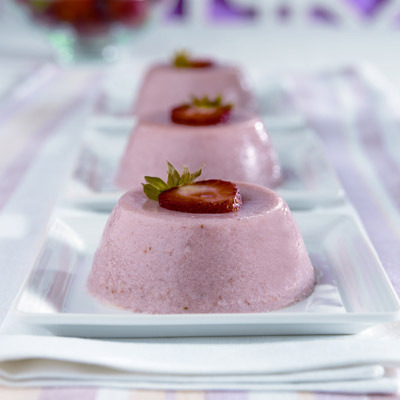
Servings: 4 - 130 kcal/5g protein per serving
1-1/2 cups whole milk
1-1/2 teaspoons unflavored gelatin
1-1/2 pints strawberries, halved
2 tablespoons Splenda No Calorie Sweetener, Granulated
1 teaspoon vanilla extract
1 pint strawberries, sliced
Sprinkle gelatin over milk in a small saucepan; let stand 1 minute. Cook over low heat, stirring until gelatin dissolves (do not boil). Set aside to cool.
Process 1-1/2 pints strawberries in a food processor, or until pureed, stopping to scrape down sides. Press strawberries through a fine wire-mesh strainer into a bowl, discarding solids. Stir cooled milk mixture into strawberry puree. Add Splenda Granulated Sweetener and vanilla, stirring until Splenda Granulated Sweetener dissolves.
Coat 4 (6-ounce) ramekins with cooking spray. Divide strawberry mixture evenly among ramekins. Cover each ramekin with plastic wrap; refrigerate 4 hours or overnight until panna cottas are set.
Run a knife around the edge of each panna cotta and unmold onto serving plates. Serve with sliced strawberries.
#low cal food#low calorie food#low cal recipe#low calorie recipe#low cal dessert#low calorie dessert#strawberry#berries#diabetic friendly#diabetic recipes#valentines#light dessert#light receipe#skinny recipe#skinny dessert#gluten-free#under 200 calories#under 300 calories#sugar free#sugar substitutes#splenda
71 notes
·
View notes
Text
Chemistry Behind Sugar Substitutes
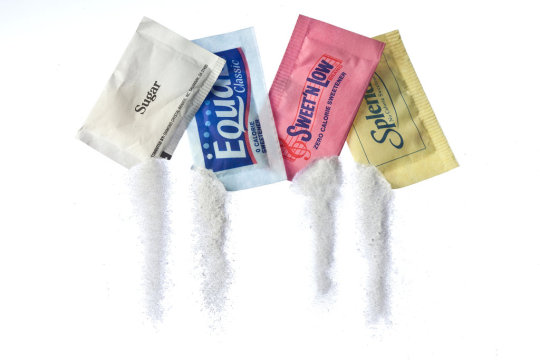
Many people have come to recognize the detrimental effects of consuming excessive sugar. It not only leads to weight gain, which can trigger chronic diseases, but it also negatively impacts the skin.
While we understand these concerns, the temptation of sweet treats is hard to resist. This is where scientists turned to the use of sugar substitutes. As a sweetener, stevioside is widely used in beverages, bread, pastries, fried foods, as well as sausages and ham.

According to some studies, stevioside has several effects on human health, including lowering blood pressure, blood sugar, providing antioxidant properties, and exhibiting antibacterial properties. However, the dosage and regulations of stevioside require more standardization and monitoring to avoid adverse reactions or complications.

#sugar alternative#sugar substitutes#stevia#chronic diseases#organicchmistry#organicchemistry#chemistry#molecule#chemblr#stemblr#stem studyblr#did u know#pls share#kingdraw
15 notes
·
View notes
Text
im addicted to sugar substitutes
#diet coke#sugar substitutes#pr0 ana diary#tw ana thoughts#tw ana diary#tw ana relapse#ana trigger#ed not sheeren#ed disorder#zero calories#monster zero#energetic#pepsi max#noaddedsugar#aspartame
5 notes
·
View notes
Photo
It will kill your bird, too. Always check what sweetener is in something before giving it to your birb.
Food dyes are also poisonous, so don't use that red "hummingbird nectar" in your hummingbird feeder. Just mix cane sugar and water.

#animal health#dog health#bird health#cat health#pet health#xylitol#birch sugar#sugar substitutes#natural sweetener
50K notes
·
View notes
Text
10 Unique Types of Honey You Must Try Now
Are you looking for different types of honey to substitute for sugar in your favorite recipes? Of course, many of us use honey instead of sugar in our tea. Additionally, we use it as a natural remedy to soothe coughs. However, many types of honey can be the perfect substitute for sugar in cooking and baking. Not only does honey bring a unique flavor to your dishes, but it also offers natural…
0 notes
Text

In today’s world of health-conscious consumers, sugar-free products have gained significant popularity. Among these, sugar-free drops stand out as an excellent way to indulge in sweet flavors without the added sugar. From maintaining blood sugar levels to reducing calorie intake, the benefits of sugar-free drops are multifaceted. This blog will explore everything you need to know about sugar-free drops, their benefits, ingredients, and the best options available on the market.
Why Go Sugar-Free?
Sugar consumption has long been associated with various health issues, including obesity, diabetes, and heart disease. In fact, the World Health Organization (WHO) recommends limiting sugar intake to less than 10% of daily caloric intake, with a further reduction to 5% for added health benefits. For those trying to reduce sugar in their diet, sugar-free alternatives, like drops, offer a solution that doesn’t compromise on taste.
For people with conditions such as diabetes, sugar-free options are a lifesaver. They allow for sweet indulgences without spiking blood glucose levels. Similarly, those on weight-loss programs or following low-carb diets like keto can enjoy the taste of sweetness without adding extra calories or carbs.
What Are Sugar-Free Drops?
Sugar-free drops are small, flavorful candies or sweeteners that are crafted without added sugar. These drops often use sugar substitutes, which mimic the sweetness of sugar but with far fewer calories and without the negative effects of sugar. Available in a wide variety of flavors, from fruit to mint and chocolate, sugar-free drops can satisfy your sweet tooth while fitting into a healthy lifestyle.
Benefits of Sugar-Free Drops
1. Supports Weight Management
One of the primary reasons people opt for sugar-free products is to manage their weight. Sugar-free drops contain fewer calories than regular sugary candies, allowing you to indulge in the same great flavors without consuming excessive calories. This can be especially beneficial for those on calorie-restricted diets or looking to cut back on sugar consumption without giving up sweets entirely.
2. Diabetes-Friendly
People with diabetes need to keep an eye on their sugar intake to avoid spikes in blood sugar levels. Sugar-free drops, which use alternative sweeteners like stevia, sucralose, or xylitol, provide a great way for diabetics to enjoy sweet treats without the associated risks of high blood sugar.
3. Oral Health
Many sugar-free drops are made with ingredients like xylitol, which has been shown to improve oral health. Xylitol helps reduce bacteria in the mouth, preventing tooth decay and cavities. Regular sugary sweets, on the other hand, contribute to the buildup of harmful bacteria that leads to tooth damage.
4. Reduced Cravings
For those looking to cut down on sugar, sugar-free drops can help reduce cravings for sweet snacks. The drops provide the taste of sweetness without the addictive sugar rush, making it easier to stay on track with a low-sugar or sugar-free diet.
5. Low Glycemic Index
Sugar substitutes like stevia, erythritol, and monk fruit have a low glycemic index, meaning they have little to no impact on blood sugar levels. This makes sugar-free drops a safe choice for anyone wanting to maintain stable blood sugar.
Common Sweeteners Used in Sugar-Free Drops
Sugar-free drops rely on sugar substitutes to provide their sweetness. Here are some of the most common sweeteners used:
Stevia: A plant-based sweetener that is naturally calorie-free and much sweeter than sugar.
Xylitol: A sugar alcohol that is often used in sugar-free chewing gum and candy. It is known to improve dental health by reducing cavity-causing bacteria.
Sucralose: An artificial sweetener that is 600 times sweeter than sugar and contains no calories.
Erythritol: A sugar alcohol that has zero calories and doesn’t cause a spike in blood sugar levels.
Monk Fruit: A natural sweetener that contains no calories or carbs and has a glycemic index of zero, making it a popular choice for diabetics and those following keto diets.
Popular Sugar-Free Drop Brands
Here’s a list of some of the best sugar-free drops currently on the market:
1. Halls Sugar-Free Cough Drops
Halls offers a range of sugar-free cough drops, which are ideal for those seeking throat relief without the sugar. These drops come in flavors like honey lemon and black cherry, offering a soothing, sugar-free alternative during cold and flu season.
2. Werther’s Original Sugar-Free Caramel Hard Candies
Werther’s Original is known for its rich, buttery caramel flavor, and their sugar-free version is just as delicious. These drops use isomalt and acesulfame potassium to replicate the sweetness of sugar, making them a favorite for caramel lovers.
3. Ricola Sugar-Free Herbal Drops
Ricola offers a range of sugar-free herbal drops that combine natural herbal extracts with sugar alternatives to soothe sore throats. The flavors, such as mixed berry and honey lemon, are refreshing and free from sugar.
4. Altoids Sugar-Free Mints
Altoids’ sugar-free mints are perfect for freshening breath without any added sugar. Their peppermint and cinnamon flavors provide a burst of freshness, and they use sorbitol as a sweetener.
5. Brach's Sugar-Free Lemon Drops
Brach’s Sugar-Free Lemon Drops are tangy, zesty candies with a satisfying lemon flavor. Made with sorbitol and stevia, they provide the perfect sugar-free solution for citrus candy lovers.
How to Choose the Right Sugar-Free Drops
With so many options on the market, selecting the right sugar-free drops can feel overwhelming. Here are a few tips to help you choose:
Check the Sweetener: Different sugar-free drops use different sweeteners, so it’s essential to choose one that suits your preferences and health needs. For example, if you’re sensitive to sugar alcohols, look for drops sweetened with stevia or monk fruit instead of sorbitol or xylitol.
Consider the Flavor: Sugar-free drops come in a wide variety of flavors, from minty fresh to fruity or even chocolatey. Choose a flavor that satisfies your cravings.
Look for Added Benefits: Some sugar-free drops come with added benefits, such as vitamin C or throat-soothing herbal extracts. If you’re looking for more than just a sweet treat, look for drops that offer extra health perks.
Final Thoughts
Sugar-free drops provide a fantastic alternative to sugary candies, allowing you to enjoy sweet flavors without the downsides of added sugar. Whether you’re trying to cut calories, manage diabetes, or simply reduce your sugar intake, there are plenty of options available. From classic flavors like mint and caramel to fruity or herbal varieties, sugar-free drops cater to every taste. By choosing the right sweetener and flavor, you can satisfy your cravings while maintaining a healthy lifestyle.
#sugar-free drops#sugar-free candies#diabetic-friendly sweets#xylitol drops#keto-friendly candy#low-calorie sweets#sugar substitutes#oral health#stevia candy#sugar-free treats
0 notes
Text

Sugar Substitutes and Type 2 Diabetes
For individuals living with type 2 diabetes, managing sugar intake is crucial. Sugar substitutes, also known as artificial sweeteners or non-nutritive sweeteners, are often used as alternatives to sugar to sweeten foods and beverages without affecting blood sugar levels. There are several types of sugar substitutes available…
Read to know more: https://www.freedomfromdiabetes.org/blog/post/sugar-substitutes-and-type-2-diabetes-are-they-safe-alternatives/3813
#sugar substitutes#sugar substitutes for diabetics#natural sugar substitutes#what are the substitutes for sugar#sugar free#what are sugar substitutes#artificial sweeteners#healthy sugar substitutes#low-calorie sweeteners#sugar alternatives#plant-based sweeteners
1 note
·
View note
Text
Undercover Killers: Unveiling the Hidden Dangers in Food, Cosmetics, and Daily Living compiled by Skyler Chambers
I am so proud of my grandson for the research he compiled in this must-have guide! Most of us are already aware that processed food generally is not healthy. Additives, fake colors, and preservatives along with questionable processing not only compromise the nutrients, but can actually be toxic. Artificial sweeteners are a huge culprit along with anything labeled “Low Fat.” Many chemicals…

View On WordPress
#fluoride#food additive risks#healthy living#herbicides#Low Fat#side effects of food additives#Skyler Chambers#sugar substitutes#toxic chemicals#Undercover Killers: Unveiling the Hidden Dangers in Food
0 notes
Text
Impact of Sugar Substitutes on Dental Health : Common Myths
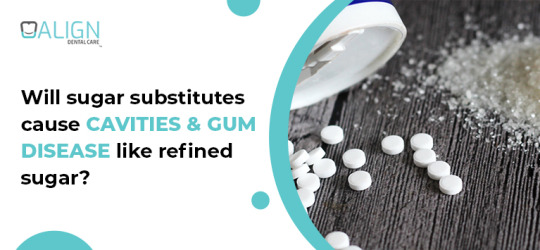
Sugar substitutes, also known as artificial sweeteners, are widely used in various food and beverage products. They are often marketed as a healthier alternative to refined sugar due to their calorie-free and non-nutritive properties. However, there is ongoing debate and confusion regarding the impact of sugar substitutes on dental health, particularly in relation to cavities and gum disease.
In this article, we aim to provide clarity on this issue by addressing common myths and misconceptions about sugar substitutes and their effects on oral health.
Myth: Sugar substitutes do not contribute to tooth decay and gum disease.
Fact: While it is true that sugar substitutes do not provide a food source for oral bacteria, they can still contribute to tooth decay and gum disease indirectly. Many sugar-free products, such as soft drinks and candies, are acidic in nature. These acidic compounds can wear down tooth enamel over time, making the teeth more susceptible to cavities and gum disease. Additionally, some sugar substitutes, such as xylitol, can increase saliva production, which can help neutralize acids in the mouth and reduce the risk of cavities.
Myth: Sugar substitutes are completely safe for dental health.
Fact: While sugar substitutes are generally considered safe when consumed in moderation, some studies have suggested a potential link between certain sugar substitutes and adverse effects on dental health. For example, research has shown that the artificial sweetener aspartame may increase the risk of tooth decay and gum disease in some individuals. It is important to note that more research is needed to fully understand the long-term effects of sugar substitutes on dental health.
Myth: Sugar substitutes can be used as a substitute for oral hygiene practices.
Fact: While sugar substitutes can help reduce the risk of cavities and gum disease, they should not be used as a substitute for good oral hygiene practices. Brushing and flossing regularly, along with regular dental check-ups, are essential for maintaining optimal dental health. Additionally, consuming a balanced diet and avoiding excessive consumption of acidic and sugary foods and beverages are important for protecting the teeth and gums.
In conclusion, while sugar substitutes can be a useful tool for reducing the risk of cavities and gum disease, they should be used as part of a comprehensive approach to oral health that includes regular oral hygiene practices and a healthy diet.
To know more in detail, visit: https://www.aligndentalcare.lk/will-sugar-substitutes-cause-cavities-gum-disease-like-refined-sugar/
0 notes
Photo

Granola - Crunchy Sugar-Free Granola This crunchy, sugar-free granola is crisp and delicious and makes a perfectly healthy breakfast in the morning.
0 notes
Photo
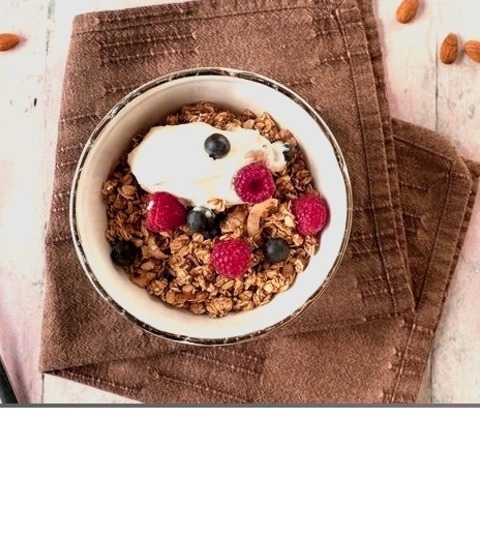
Crunchy Sugar-Free Granola Recipe This crispy, crunchy, sugar-free granola does not have any added sugar or sugar substitutes and is a perfectly healthy morning breakfast.
0 notes
Text
DON'T USE SPLENDA!
"Both human and animal studies show that ingestion of sucralose can disrupt the normal balance of bacteria in the gut and negatively alter blood concentrations of glucose and insulin [and] when used in cooking, [sucralose] can form chloropropanols, a potentially toxic class of compounds."
1 note
·
View note
Photo

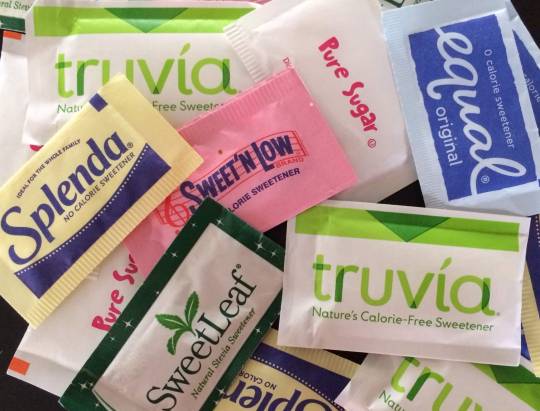
The whole conversation around the risks of consuming sugar, added sugars, and artificial sugar substitutes is confusing for anyone, especially those with diabetes.
The health risks associated with consuming too much sugar in your foods and drinks are alarming. But sugar is sneaky. When you think you figured it out, you look closely at nutrition labels, only to discover manufacturers have ways of hiding sugar in foods and drinks marketed as 'healthy.'
When you know, a 16 oz bottle of Coke contains almost ten teaspoons of sugar; you think you're making a better choice by reaching for a Diet Coke or Coke Zero. But recent studies suggest that fake sugars can also have unexpected effects on your gut and metabolic health and even promote food cravings and insulin resistance, leading to Type 2 diabetes. Not to mention, quitting Diet Coke can lead to headaches and withdrawal symptoms. I know because I've experienced the vicious cycle of quitting Diet Coke several times without much success. And what about these murmurs that diet drinks make you fat? Morning TV shows love to share results from studies that have found using artificial sweeteners and drinking high amounts of diet soda is associated with an increased risk of obesity and metabolic syndrome. One study also reported a link between the high consumption of diet drinks and the increase in belly fat in older adults. Drinking water is a great alternative. But if you're like me, you enjoy a carbonated drink from time to time. So what do you do? A glance at the cold drinks shelves at my local bodega reveals a plethora of diet drinks. Every company offering a popular sugar-sweetened beverage now offers a sugar-free alternative. Each contains a list of ingredients a mile long with names only a scientist could understand. If you're wondering why sugar substitutes seem more prevalent in our food and drink choices, one reason could be the Food and Drug Administration's proposal to stop companies from labeling a food “healthy” unless it adheres to strict new limits on added sugars. Savvy companies can conform to the proposed rules by replacing added sugars in foods with artificial sweeteners. “When companies reformulate their foods to contain less sugar, it leads them to use more non-nutritive sweeteners,” said Jotham Suez, an assistant professor at the Johns Hopkins Bloomberg School of Public Health, told the Washington Post
. Studies show that when countries such as Chile and Australia instituted similar policies to reduce sugar consumption, there was an increase in artificially sweetened foods and beverages. “These low-calorie sweeteners are ubiquitous in the food supply, and so people often aren’t even aware that they’re consuming them,” said Allison Sylvetsky, an associate professor in the Department of Exercise and Nutrition Sciences at George Washington University. Many sugar substitutes are often hundreds of times sweeter than table sugar. Some are synthetic, while others, like stevia and monk fruit extract, are referred to as “natural” because they’re derived from plants. The confusion surrounding what to do makes me feel like I'm talking from two sides of my mouth.
Divabetic has hosted several Sugar-Free Baking Programs on Zoom, and we have shared dozens of Sugar-Free Dessert Recipes. Both of these offerings have proven to be very popular with our community. We've even rewarded our followers with free gift baskets of popular artificial sweeteners. But after seeing the new findings, I'm unsure how to proceed.
The World Health Organization cautioned people to limit their intake of sugar substitutes because of their potential for “undesirable” long-term effects, including detrimental effects on gut and metabolic health. What the heck is Gut Health? Gut health refers to the health of the entire digestive system — the parts of our body responsible for breaking down our food into individual nutrients we use to run our bodies.
If you suffer from frequent discomfort, gas, bloating, constipation, diarrhea, and heartburn, your gut has difficulty processing food and eliminating waste. People with chronic fatigue may have imbalances in the gut. Health Studies Seem To Only Make It More Confusing! According to a Cedars-Sinai study, one type of bacteria in the gut may contribute to the development of Type 2 diabetes, while another may protect from the disease. The researchers admitted it is too early to know how people can change their microbiome to reduce their diabetes risk.
In the meantime, experts recommend using artificial sweeteners sparingly because science changing all the time. Many of these old and new sugar substitutes seem destined to spur ongoing concerns and confusion. All we can hope for is to use them in moderation as we strive to live our best diabetes lives.
#sugar#sugar-free#hiddensugar#added sugar#Diabetes#diabetic#type 2 diabetes#gut health#gut#artifical sweetener#sugar substitutes#diet#weight loss#weight gain#choas#chaos#food#drink
1 note
·
View note
Text
The Best Safe Natural Sugar Alternative in the World!
Are you looking for a sweetener to satisfy your cravings and still fit into your healthy lifestyle? If so, erythritol may be the perfect solution. Not only is it 100 percent natural and plant-based, but studies have also shown that it offers antioxidant benefits that are beneficial to health. Plus, its minimal calories make this sweetener an ideal choice for anyone looking to eliminate refined sugars from their diet. In this blog post, we’ll discuss why erythritol is such an effective sweetener, who should consider adding it to their regimen, and how you can get started incorporating it into yours!
0 notes
Text
Sugar substitute erythritol may increase risk of strokes : Report
A study published on Monday in Nature Medicine showed that a sugar substitute Erythritol , which is commonly used for Ketogenic ( Keto ) diet, is linked to many cardiovascular events including the risk of blood clotting , heart attacks and strokes- Read more
0 notes